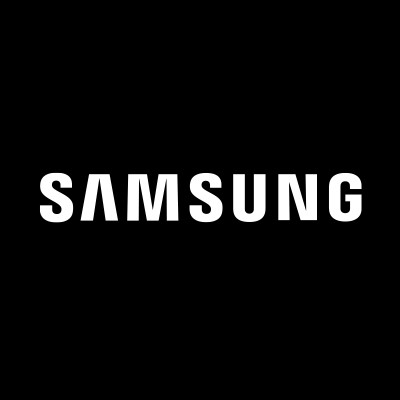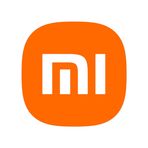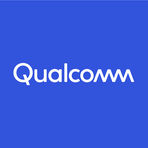The Tug of War: U.S. Economic Policy and Global Tech Ambitions
March 3, 2025, 9:55 pm

Location: United States, California, Cupertino
Employees: 10001+
Founded date: 1976
Total raised: $500.1B

Location: United States, California, San Francisco
Employees: 10001+
Founded date: 1938
Total raised: $6.4B
In the world of economics and technology, the stakes are high. The U.S. is caught in a tug of war, balancing tariffs and trade while tech companies like Honor are racing to redefine their futures. The recent clash between President Trump and foreign leaders, coupled with Honor's ambitious AI investment, paints a vivid picture of a world in flux.
Tariffs are like a double-edged sword. They can protect domestic industries but often hurt consumers. President Trump’s decision to impose tariffs on Canada and Mexico is a bold move. It’s a gamble, especially with the U.S. economy showing signs of strain. The stock market is shaky, prices are stubbornly high, and consumer sentiment is low. Yet, Trump insists these tariffs won’t fuel inflation. It’s a tightrope walk.
In the Oval Office, tensions flared between Trump and Ukrainian President Zelenskyy. Their clash was more than a disagreement; it was a spectacle. The body language spoke volumes. Zelenskyy left without a deal, but he stood his ground. This confrontation reflects a broader trend in U.S. foreign policy—an unpredictable pivot away from traditional allies. The world watches closely.
Meanwhile, U.S. Treasury Secretary Scott Bessent is urging Canada to join the tariff fray against China. The stakes are rising. China’s Ministry of Commerce is ready to retaliate. This back-and-forth is a high-stakes chess game, with each move potentially reshaping global trade dynamics. The economic landscape is shifting, and the consequences could be profound.
Inflation remains a hot topic. The latest figures show a modest rise in the personal consumption expenditures price index. It’s a mixed bag. The Federal Reserve is likely to keep its finger on the pause button, waiting for clearer signals. The economy is on a precarious path, with predictions of a 1.5% contraction in GDP for the first quarter. Consumers are tightening their belts, and exports are faltering. It’s a storm brewing on the horizon.
In the tech arena, Honor is making waves. The Chinese smartphone maker has pledged a staggering $10 billion for AI investments over the next five years. This is not just a financial commitment; it’s a strategic pivot. Honor aims to transition from a smartphone manufacturer to an AI device ecosystem company. It’s a bold vision, one that seeks to challenge giants like Apple and Samsung.
At the Mobile World Congress in Barcelona, Honor unveiled its plans. The company is not just looking to innovate; it’s aiming to create a platform where various AI devices can communicate seamlessly. This interconnectedness is the future. Honor’s AI agent, demonstrated at the event, showcases the potential of advanced virtual assistants. Imagine asking an AI to book a restaurant, and it does so effortlessly. This is the promise of AI.
Honor’s partnership with Google is significant. It’s a step toward legitimacy in a market dominated by established players. The commitment to seven years of Android updates for its flagship devices is a testament to this partnership. It positions Honor alongside Samsung and Google’s Pixel products, enhancing its credibility. In a world where software support can make or break a device, this is a strategic advantage.
The landscape is evolving rapidly. Honor’s market share outside China is still modest, but it’s growing. From 1.7% in 2023 to 2.3% in 2024, the company is making strides. The road ahead is challenging, but the investment in AI could be a game-changer. It’s a calculated risk, one that could redefine its place in the global market.
As the U.S. grapples with economic uncertainty, tech companies are forging ahead. The contrast is stark. While tariffs loom and trade tensions escalate, innovation continues to thrive. Honor’s ambitious plans highlight a critical truth: in the world of technology, adaptability is key. Companies that can pivot and innovate will thrive, even in turbulent times.
The interplay between U.S. economic policy and global tech ambitions is a complex dance. Tariffs may protect certain industries, but they also risk alienating allies and consumers. Meanwhile, companies like Honor are pushing boundaries, seeking to carve out their niches in a competitive landscape. The future is uncertain, but one thing is clear: the tug of war between protectionism and innovation will shape the world for years to come.
In conclusion, the current economic climate is a high-stakes game. The U.S. is navigating a challenging path, balancing tariffs and trade while facing a potential economic downturn. On the other hand, tech companies like Honor are boldly investing in the future, redefining their roles in a rapidly changing market. The outcome of this tug of war will have lasting implications, not just for the U.S. but for the global economy as a whole. The world is watching, and the next moves will be crucial.
Tariffs are like a double-edged sword. They can protect domestic industries but often hurt consumers. President Trump’s decision to impose tariffs on Canada and Mexico is a bold move. It’s a gamble, especially with the U.S. economy showing signs of strain. The stock market is shaky, prices are stubbornly high, and consumer sentiment is low. Yet, Trump insists these tariffs won’t fuel inflation. It’s a tightrope walk.
In the Oval Office, tensions flared between Trump and Ukrainian President Zelenskyy. Their clash was more than a disagreement; it was a spectacle. The body language spoke volumes. Zelenskyy left without a deal, but he stood his ground. This confrontation reflects a broader trend in U.S. foreign policy—an unpredictable pivot away from traditional allies. The world watches closely.
Meanwhile, U.S. Treasury Secretary Scott Bessent is urging Canada to join the tariff fray against China. The stakes are rising. China’s Ministry of Commerce is ready to retaliate. This back-and-forth is a high-stakes chess game, with each move potentially reshaping global trade dynamics. The economic landscape is shifting, and the consequences could be profound.
Inflation remains a hot topic. The latest figures show a modest rise in the personal consumption expenditures price index. It’s a mixed bag. The Federal Reserve is likely to keep its finger on the pause button, waiting for clearer signals. The economy is on a precarious path, with predictions of a 1.5% contraction in GDP for the first quarter. Consumers are tightening their belts, and exports are faltering. It’s a storm brewing on the horizon.
In the tech arena, Honor is making waves. The Chinese smartphone maker has pledged a staggering $10 billion for AI investments over the next five years. This is not just a financial commitment; it’s a strategic pivot. Honor aims to transition from a smartphone manufacturer to an AI device ecosystem company. It’s a bold vision, one that seeks to challenge giants like Apple and Samsung.
At the Mobile World Congress in Barcelona, Honor unveiled its plans. The company is not just looking to innovate; it’s aiming to create a platform where various AI devices can communicate seamlessly. This interconnectedness is the future. Honor’s AI agent, demonstrated at the event, showcases the potential of advanced virtual assistants. Imagine asking an AI to book a restaurant, and it does so effortlessly. This is the promise of AI.
Honor’s partnership with Google is significant. It’s a step toward legitimacy in a market dominated by established players. The commitment to seven years of Android updates for its flagship devices is a testament to this partnership. It positions Honor alongside Samsung and Google’s Pixel products, enhancing its credibility. In a world where software support can make or break a device, this is a strategic advantage.
The landscape is evolving rapidly. Honor’s market share outside China is still modest, but it’s growing. From 1.7% in 2023 to 2.3% in 2024, the company is making strides. The road ahead is challenging, but the investment in AI could be a game-changer. It’s a calculated risk, one that could redefine its place in the global market.
As the U.S. grapples with economic uncertainty, tech companies are forging ahead. The contrast is stark. While tariffs loom and trade tensions escalate, innovation continues to thrive. Honor’s ambitious plans highlight a critical truth: in the world of technology, adaptability is key. Companies that can pivot and innovate will thrive, even in turbulent times.
The interplay between U.S. economic policy and global tech ambitions is a complex dance. Tariffs may protect certain industries, but they also risk alienating allies and consumers. Meanwhile, companies like Honor are pushing boundaries, seeking to carve out their niches in a competitive landscape. The future is uncertain, but one thing is clear: the tug of war between protectionism and innovation will shape the world for years to come.
In conclusion, the current economic climate is a high-stakes game. The U.S. is navigating a challenging path, balancing tariffs and trade while facing a potential economic downturn. On the other hand, tech companies like Honor are boldly investing in the future, redefining their roles in a rapidly changing market. The outcome of this tug of war will have lasting implications, not just for the U.S. but for the global economy as a whole. The world is watching, and the next moves will be crucial.

